Introduction
Lobbying by polluting industries represents a formidable barrier to environmental progress, with tactics evolving to counter increasing regulatory pressures. According to a 2022 InfluenceMap report, companies such as ExxonMobil and Chevron exert significant negative influence on climate policies through sophisticated methods that hinder implementation [1]. In Europe, the chemical sector employs strategies to cast doubt on the harms of endocrine disruptors, delaying actions as detailed in analyses from Taurillon [2]. This overview synthesizes factual data from 2023–2025, enriching research with expert perspectives and social media discussions. The focus is on key players responsible for a majority of emissions, highlighting both manipulative practices and constructive responses.
Key Tactics Employed
Polluting industries utilize a range of tactics to avoid constraints, often prioritizing economic arguments over environmental imperatives. One primary method is scientific manipulation, where firms fund studies to sow doubt about pollution’s impacts. A 2024 Earth Day article describes this as the “gaslight effect,” with fossil fuel lobbyists spreading misinformation to obstruct sustainable energy transitions [G1]. The Center for American Progress notes these tactics fuel democratic backsliding by discrediting climate science [G2].
Another approach involves promoting compensation policies, like carbon offsets, which allow continued emissions without real reductions. Le Monde’s investigation reveals intense lobbying to retain free emission quotas in the EU [G10]. The Union of Concerned Scientists underscores decades of deception, including pushing offsets over direct cuts [G4].
Legislative influence is achieved through economic framing: emphasizing job losses or energy security. Reuters reported that top companies like ExxonMobil undermine their own climate pledges via lobbying [G3]. Studies confirm these firms control narratives to weaken policies [1]. Social media posts highlight subsidies enabling “pay to pollute” schemes, reflecting public frustration with firms like Saudi Aramco [G16].
Case Studies of Major Players
Examining specific cases illustrates these tactics in action. ExxonMobil and Chevron, flagged for negative policy influence, have spent millions on lobbying since 2008, as per Statista data [1]. A 2022 InfluenceMap report details their efforts to hinder U.S. climate policies, while social media discussions in 2025 accuse them of hypocrisy, citing internal knowledge of climate risks since the 1970s [G15].
In Europe, Shell and BP aggressively lobby against stringent rules; a 2019 Ouest-France report noted €250 million spent on EU influence [G11]. Le Devoir’s 2022 COP27 coverage highlights their presence to delay transitions [G14]. For Asian giants like Coal India, tactics leverage nationalism, framing coal phase-outs as threats to jobs, as seen in social media sentiment tying them to half of global CO2 [G17].
The chemical industry’s strategies, per Taurillon, involve creating doubt on endocrine disruptors to stall regulations [2]. A 2024 Milbank Quarterly study shows patterns of health policy manipulation across industries [4].
Current Trends and Industry Influence in 2025
In the plastics and chemical sector, the scale of lobbying is unprecedented. At the 2025 Geneva negotiations, fossil fuel and chemical lobbyists outnumbered diplomats from all EU countries combined, with over 230 registered lobbyists far exceeding the number of independent scientific experts [G8]. Reports show these actors promoted weaker treaty language, shifting focus from production cuts to recycling and voluntary measures [G7][G9]. Greenpeace and CIEL both call attention to industry efforts to undermine ambition, noting lobbyists’ presence in official delegations and plenary sessions [G12][G8].
High-level scientific experts and UN agencies warn that such strong presence enables continued doubt casting and regulatory stalling [G20]. Media and expert analysis emphasize a well-documented playbook: deny, distract, derail progress.
Constructive Perspectives and Solutions
Transparency laws, such as enhanced EU lobbying registers, aim to counter influence [5]. Education efforts, including resources from Clemi, empower citizens to detect manipulative messaging [3]. Regulatory experts and advocacy groups push for exclusions of industry lobbyists from treaty talks, full disclosure of contacts, and stricter industry reporting [G11][G6].
Citizen lawsuits and campaigns drive change, and monitoring platforms like InfluenceMap track actions and accountability [1]. Senate reports in the U.S. and advocacy by the Union of Concerned Scientists recommend limiting direct fossil fuel influence in policymaking [G7].
KEY FIGURES
- 70% of greenhouse gases since 1988 are linked to about 100 companies, many of which are fossil fuel producers [1].
- ExxonMobil and Chevron are among the companies exerting significant negative influence on climate policies [1].
RECENT NEWS
- InfluenceMap Report (2022): Reveals that major oil companies like Chevron and ExxonMobil use sophisticated lobbying methods to hinder climate policy implementation [1].
- European Lobbying: The European chemical industry uses strategies to create doubt on the harmfulness of endocrine disruptors, delaying regulatory actions [2].
- Fossil Fuel and Chemical Lobbyists at INC-5.2 (2025): Industry lobbyists outnumbered EU and NGO representatives in Geneva, actively influencing plastics treaty negotiations [G8][G12].
STUDIES AND REPORTS
- InfluenceMap Study (2022): Highlights how companies like ExxonMobil and Chevron use lobbying to undermine climate policies, often by controlling the narrative on climate change [1].
- Lobbying Practices Study (2024): Analyzes the lobbying strategies of harmful industries, including how they impact public health and environmental policies [4].
TECHNOLOGICAL DEVELOPMENTS
No specific recent technological developments aimed at reducing pollution through lobbying tactics were found in the search results.
MAIN SOURCES:
- Statista – Influence des lobbies sur les politiques climatiques: https://fr.statista.com/infographie/26136/entreprises-lobbies-avec-influence-la-plus-negative-politiques-climatiques/
- Taurillon – Les lobbies en Europe: https://www.taurillon.org/les-lobbies-en-europe-4-5-plaidoyer-et-science-rapports-troubles
- Clemi – Manipulation de l’information scientifique: https://www.clemi.fr/ressources/ressources-pedagogiques/comment-les-lobbys-industriels-peuvent-manipuler-linformation-scientifique
- Milbank Quarterly – Lobbying Practices: https://pmc.ncbi.nlm.nih.gov/articles/PMC10938928/
- Theses.fr – L’industrie du Lobbying: https://theses.fr/2014NICE0019
Propaganda Risk Analysis
Score: 7/10 (Confidence: medium)
Key Findings
Corporate Interests Identified
Fossil fuel companies and lobbyists appear to benefit, as web and news sources (e.g., reports from Mother Jones and the Center for American Progress) detail how these entities spread misinformation on platforms like Twitter to obstruct sustainable energy shifts. The article’s focus on ‘polluting industries’ evading regulations suggests influence from fossil fuel sectors, with no clear disclosure of the article’s own funding or ties.
Missing Perspectives
The article snippet excludes voices from fossil fuel workers, industry experts, or economists who might argue that energy transitions create net job gains or that regulations are necessary for long-term economic stability. It also omits perspectives from developing nations or labor unions affected by rapid shifts away from fossil fuels, presenting a one-sided view of lobbying as purely obstructive.
Claims Requiring Verification
The snippet references ‘fossil fuel lobbyists spreading misinformation to obstruct sustainable energy, emphasizing job losses or energy’ without providing sources, data, or specific examples. No statistics are cited (e.g., on actual job loss figures), and the incomplete key quote (‘as noted in Grok insights. This could fragment international efforts amid tensions. However, a’) lacks context or verification, potentially relying on anecdotal or biased interpretations.
Social Media Analysis
Searches on X reveal a cluster of posts from 2024-2025 emphasizing job losses in clean energy and renewables (e.g., claims of ‘tens of thousands’ of jobs destroyed by net zero policies, with ratios like ‘three oil and gas jobs lost for every one clean energy job created’). These often come from political figures, industry insiders, and users critical of green agendas, mirroring themes in web sources about fossil fuel-coordinated misinformation. Sentiment leans anti-renewable, with some posts possibly part of broader campaigns to highlight economic downsides, though not definitively proven as paid promotions. No clear astroturfing evidence like identical phrasing across accounts, but patterns suggest aligned messaging around job losses to undermine sustainable energy transitions.
Warning Signs
- Incomplete and fragmented article structure, which could indicate poor sourcing or editing to push a narrative without full context
- Language resembling advocacy copy (e.g., ‘unveiling lobbying tactics’ and accusations of ‘spreading misinformation’) without balancing counterarguments or evidence
- Absence of independent expert opinions or data sources to support claims about job losses and regulatory evasion
- Potential self-referential bias with mention of ‘Grok insights,’ which may introduce conflicts if tied to AI or platform interests
- No mention of environmental benefits or successes of regulations, focusing solely on negative industry tactics
Reader Guidance
Other references :
fr.statista.com – L’influence des lobbies contre les politiques climatiques – Statista
taurillon.org – Les lobbies en Europe (4/5) : Plaidoyer et science, rapports troubles
clemi.fr – Comment les lobbys industriels peuvent manipuler l’information …
pmc.ncbi.nlm.nih.gov – Mapping the Lobbying Footprint of Harmful Industries: 23 Years of …
theses.fr – L’industrie du Lobbying. Les stratégies d’influence des groupements …
earthday.org – Source
americanprogress.org – Source
reuters.com – Source
blog.ucs.org – Source
sciencedirect.com – Source
influencemap.org – Source
budget.senate.gov – Source
telerama.fr – Source
clubic.com – Source
lemonde.fr – Source
ouest-france.fr – Source
usinenouvelle.com – Source
ladn.eu – Source
ledevoir.com – Source
x.com – Source
x.com – Source
x.com – Source
x.com – Source
x.com – Source
x.com – Source



